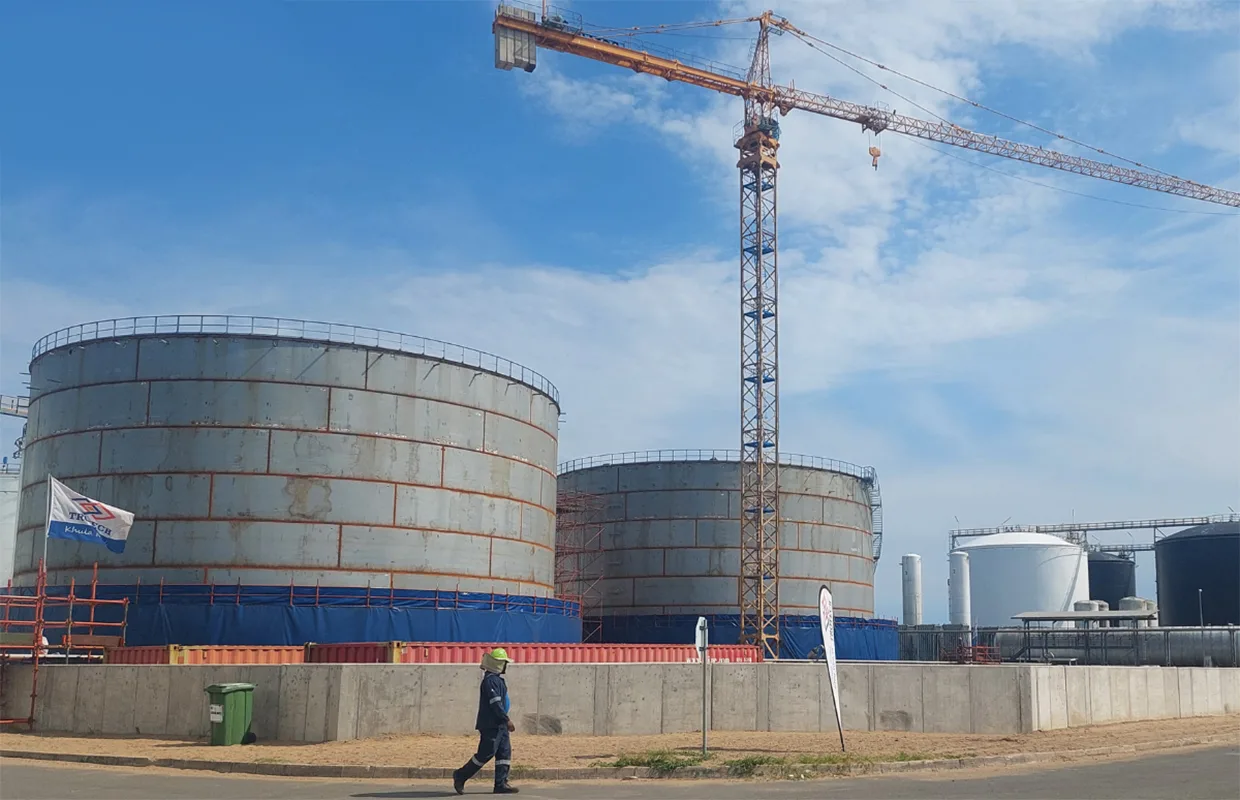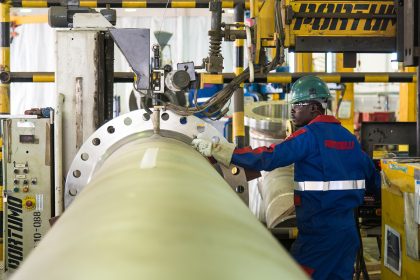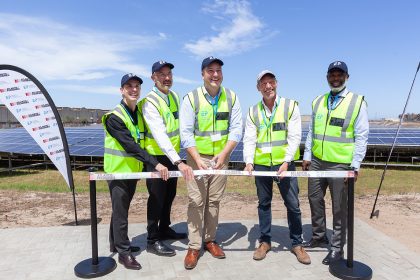Tailored to ensure efficiency, quality, and safety, underpinned by 30 years of established experience, Trotech engineers, procures, and constructs above-ground bulk storage tanks and auxiliaries. Lukas Brink, Managing Director, takes us on a journey through the company’s myriad offerings.
THINK TANKS, THINK TROTECH
Established in 1993 in South Africa (SA), Trotech has made a reputable and reliable name for itself by offering specialist services in the field of engineering, design, manufacture, and installation with operations that extend across the country and abroad.
Boasting over three decades of experience delivering bulk storage tank solutions safely, on time, and with the highest quality standards, the company serves clients across the oil and gas, chemical, and mining sectors alongside other heavy industry entities.
“We build large storage tanks primarily on-site for a variety of customers,” introduces Lukas Brink, Managing Director.
“Approximately 95 percent of our business is local to SA. With many companies entering the market utilising international labour and materials, we are proud to be local and connected with our surrounding communities.”
Trotech’s main focus is on new build tanks; however, the company’s other core capabilities include rebuilding and repairs, geodesic dome roof tanks, cryogenic tanks, pressure tanks, and tank design, jacking, and semi-automatic welding.
In August 2024, the company began a new depot services division to expand its services, which it anticipates will comprise 20 percent of its business going forth.
“In the first six months of starting the division, we’ve already secured enough work to make 20 percent of our turnover,” Brink excites.
This success can be seen directly in Trotech’s continued substantial growth. Specifically, the company doubled its turnover in 2024, and this trajectory is on track to continue for the coming financial year.
Brink began his career at a small business conducting sales before taking a role as a project mechanical specialist at a large oil company in SA. From there, he joined a consulting engineering firm where he oversaw as many as 18 fuel installation and field depot service projects at any one time.
With vast experience as a professional mechanical engineer involved in the design and project management of large-scale construction operations, he felt he needed a new challenge, thus joining Trotech in its vision to lead the way in construction excellence.
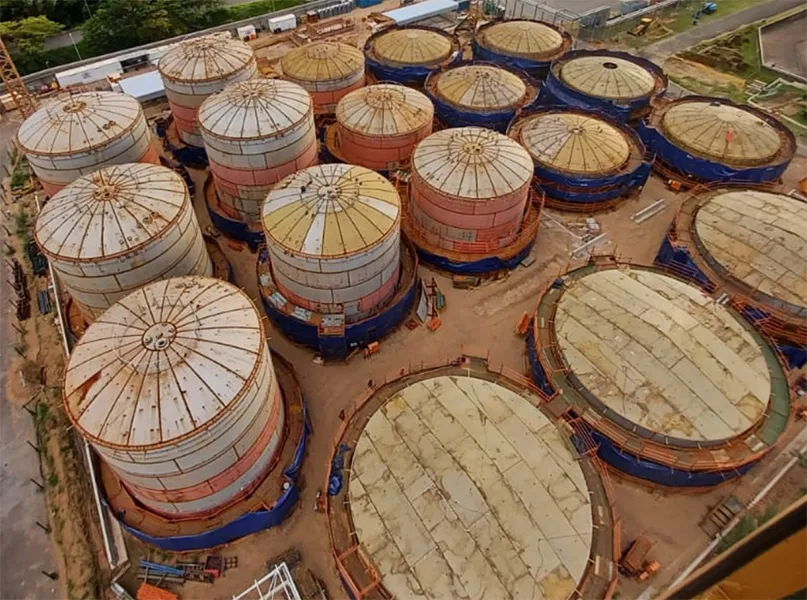
AT THE FOREFRONT OF INNOVATION
Brink has observed the industry taking an interesting turn over the past few years, primarily due to the rapid advancement of technology and focus on commercial safety.
“The sector has gone from very straightforward to much more competitive and intricate,” he notes.
“Despite it being a tough environment at the moment with the SA market being very touch and go, Trotech is continuing to succeed in doing what it does best – providing unparalleled service.”
What serves to distinguish the company and allow it to remain an industry leader is its hands-on nature and flat organisational structure.
A wholly-owned subsidiary of the Murray and Dickson Construction Group (M&D), the company is not only able to be agile and make quick decisions but is also afforded the ability to operate in a broad sphere of construction activities, many of which are specialist in nature.
Additionally, Trotech has adopted the international entrepreneurial operating system (EOS), which it has customised as its own management system, MDOS, aligning with M&D. This system is rigorously applied company-wide, enabling it to have clear strategic planning, ongoing performance monitoring, and immediate identification of issues necessitating urgent attention.
These procedures allow Trotech to work seamlessly between teams, clients, and locations.
Specifically, construction projects are executed by various operational divisions. This structured approach not only creates an integrated network but also enhances performance management across all divisions.
Equally, the company’s core values and unwritten ground rules (UGRs) help to define how it functions with integrity on a daily basis.
“We prioritise growing the people within our organisation alongside our partners. It’s all about looking forwards together and seeing how we can all benefit from collective teamwork,” Brink dictates.
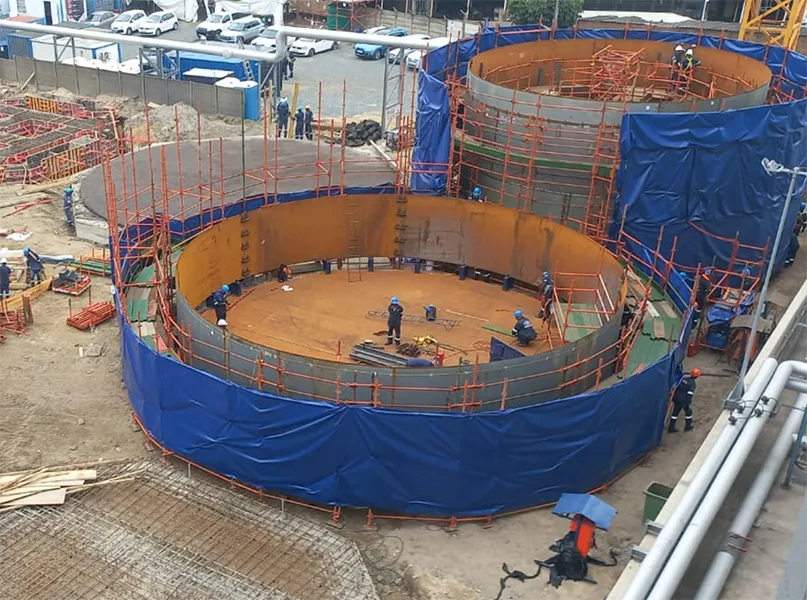
STREAMLINING TANKAGE NEEDS
Currently, Trotech is working on a variety of projects across the African region, with one comprising the construction of four new tanks for Botswana Oil Limited and the national government – an operation that is ahead of schedule and running successfully.
Additionally, the company achieved a massive feat in 2024 when it completed a total of 18 tanks in just 10 months – aptly displaying its ability to not only construct high-quality tanks but also do so in a timely manner.
“We benefit the client substantially by bringing their projects to life much more quickly and efficiently,” Brink expands.
“We always strive to provide our clients with the best service. Our main driver, and what we seek to consistently achieve, is being the best contractor available.”
One example of Trotech’s advanced technical capabilities is its specific method of building called tank jacking, which few companies in SA are able to do.
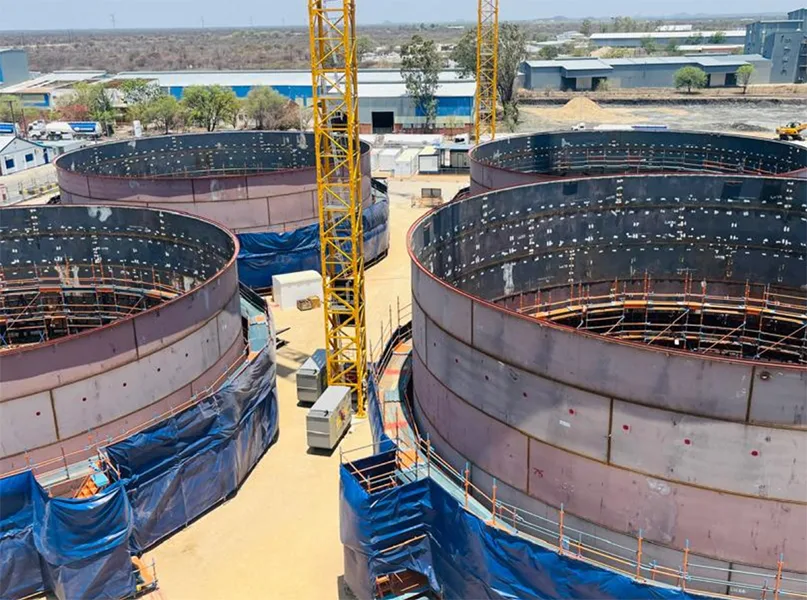
“Tank jacking is a much safer and faster method of construction,” he details.
This specialised method consists of constructing a tank from the top down, using hydraulic jacks to lift and support plates as they are welded into place, as opposed to the traditional method of starting with the bottom plates and working upwards.
In addition to being much safer and more efficient, tank jacking is ideal for erecting steel tanks, repairing tank floors, and enlarging storage capacity.
Crucial to producing results such as these is Trotech’s relationships with its partners and suppliers. The company has a significant level of trust in these relationships and ensures both contributors find mutual benefit in the long term.
Trotech’s supply chain is mainly from SA, with all raw materials coming from inside the country.
“In Africa, a local mindset is monumental because it’s all about how you can grow your country and uplift the communities around you, creating jobs and opportunities for everyone,” Brink insights.
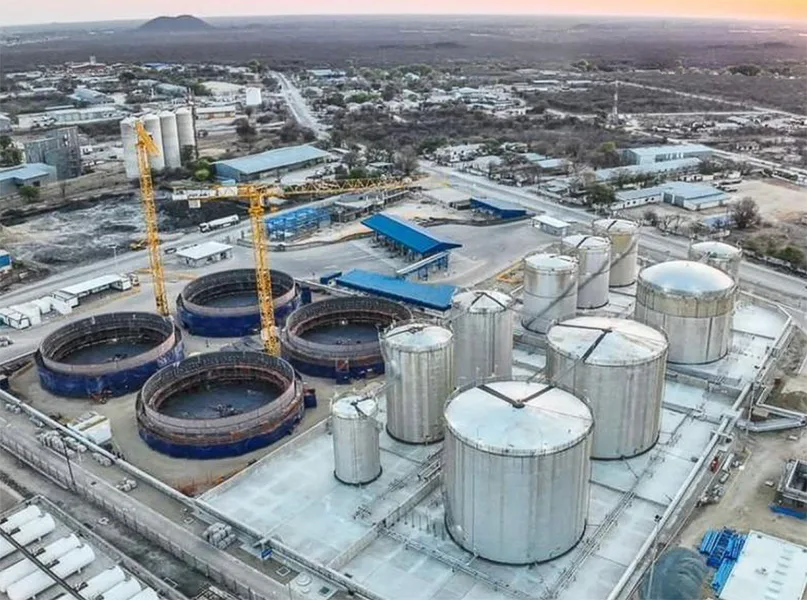
CONSTRUCTING A SAFER FUTURE
As Trotech continues to look towards the future of tank construction in the region, it is emphasising a few key initiatives, including securing another anchor project, continuing its upward growth, and ensuring its depot services and maintenance division becomes stable and self-sustaining.
Equally, the company has a broader 10-year target of becoming the most significant bulk storage tank builder in Africa.
It is working to accomplish this by expanding its footprint into the Southern African Development Community (SADC) – a regional economic community comprising 16 member states.
“We want to expand further into Botswana, Namibia, Angola, and so forth to provide our cutting-edge services to more regions and communities who have the potential to benefit from it,” Brink explains.
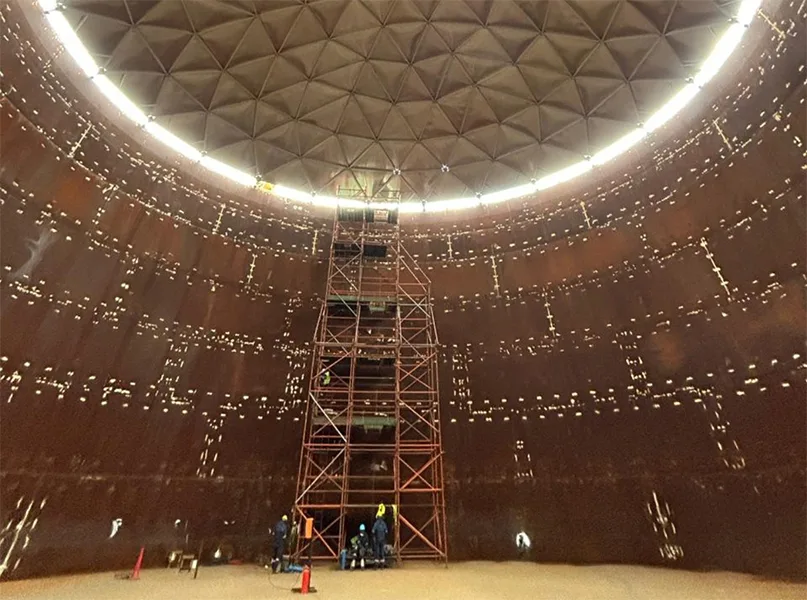
Just as crucial to Trotech as it evaluates where it wants to be in the coming years is its work with corporate social responsibility (CSR) programmes.
The company engages with the communities it works in by making considerable contributions, supporting local sports teams, and even donating some of its project containers to local schools to be used as additional classrooms.
“We also train artisans to help them gain skills for careers such as boiler making and welding. After two to three years of training, they become absorbed into the company and are able to improve their livelihoods,” Brink details.
Trotech is, therefore, determined to continue its impressive track record and commitment to safety.
Proudly, in March 2025, the company’s maintenance team for Astron Energy (Astron) – an industry-leading fuel brand – achieved 1,000 days of injury-free performance at its state-of-the-art refinery in Cape Town. This impressive feat reaffirms Trotech’s unwavering dedication to health and safety. This is a significant accomplishment for a construction company doing high-risk work,” proudly concludes Brink.



